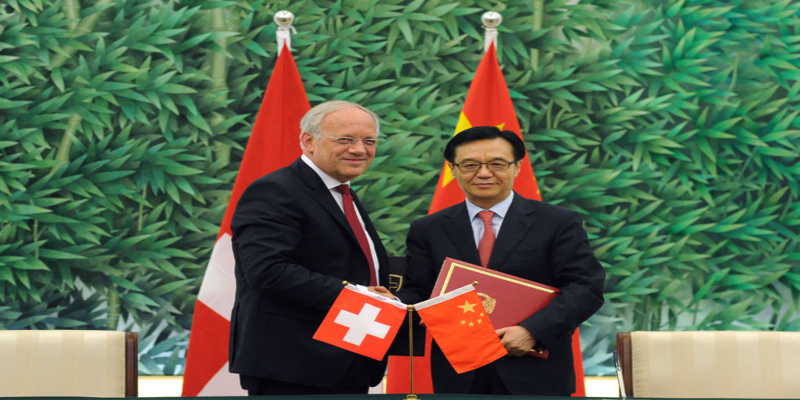German Chancellor Angela Merkel hails the conclusion of talks on an investment security deal with China at the end of Germany’s presidency of the Council of the European Union as a major achievement. That was in late December, but doubts about Merkel’s China strategy have grown since then.
Closer relations with Beijing are not supported by the European Commission or the European Parliament at the moment. Because of China’s human rights violations, the Comprehensive Agreement of Investment (CAI) has been put on hold.
The Chinese government not only denies all such violations, but also continues to target Western leaders, journalists, and human rights activists who condemn the persecution of the Tibetan and Uighur minorities or denounce the country’s lack of press freedom.
Human rights violations, on the other hand, seem to be no barrier for the Swiss government in expanding economic ties. A treaty on investment security was concluded between the two countries as early as 2009.
Four years later, a bilateral free trade agreement was signed. Switzerland’s experience had been good, according to Jan Alteslander of powerful Swiss business lobby group Economiesuisse, who added that bilateral trade had been nearly balanced and had even picked up momentum in recent years.
GOODS TRADE IS INCREASING:
Switzerland exported 13.4 billion Swiss francs (€12.2 billion, $14.7 billion) to China in 2019, thus importing 14.9 billion Swiss francs. Swiss investments in China have increased eightfold in the last two decades.
If Chinese investments in Switzerland are any indication, Beijing is more important to Bern than the other way around. Swiss banks have purchased majority stakes in Chinese subsidiaries in recent years. China, for its part, paid a large amount for Swiss agriculture behemoth Syngenta.
People who express fears that such transactions aren’t just about business but may also entail espionage can quickly become targets of Beijing’s wrath.
Wang Shihting, China’s ambassador to Switzerland, recently denied any such allegations in an online press conference, praising the two countries bilateral relations and dismissing the presence of “so-called detention camps” where Uighurs were forced to work as spiteful political speculation.
SEPARATING IT IN A NEAT MANNER:
According to Ralph Weber of the University of Basel’s Institute for European Global Studies, Switzerland has always attempted to distinguish economic interests from human rights.
He explained that there was a common belief that trade issues had nothing to do with human rights and that those advocating for human rights violations were trapped in their own realm of ideals and had no connection to the real economy.
picture courtesy: watchpro.com







Leave a Reply